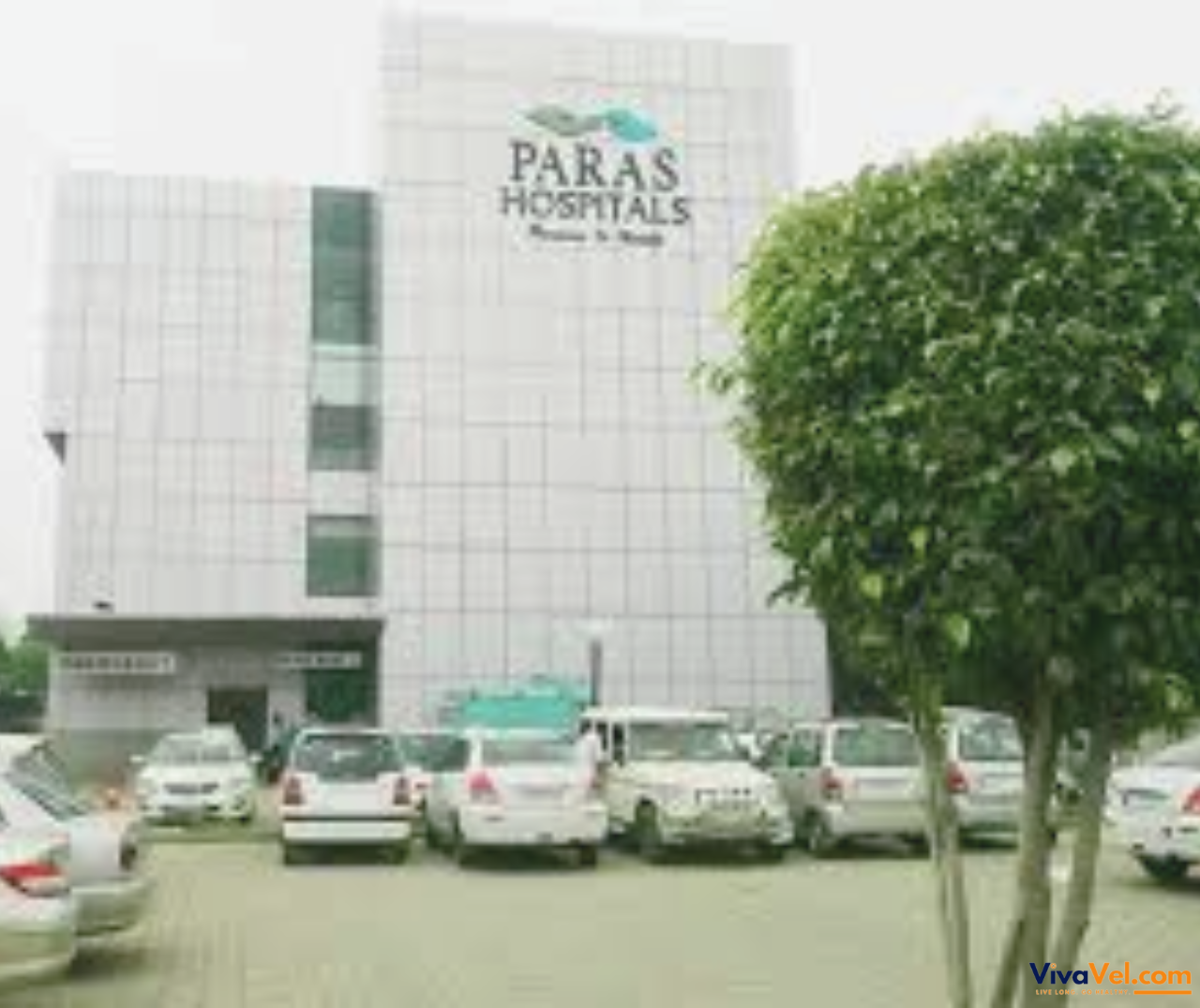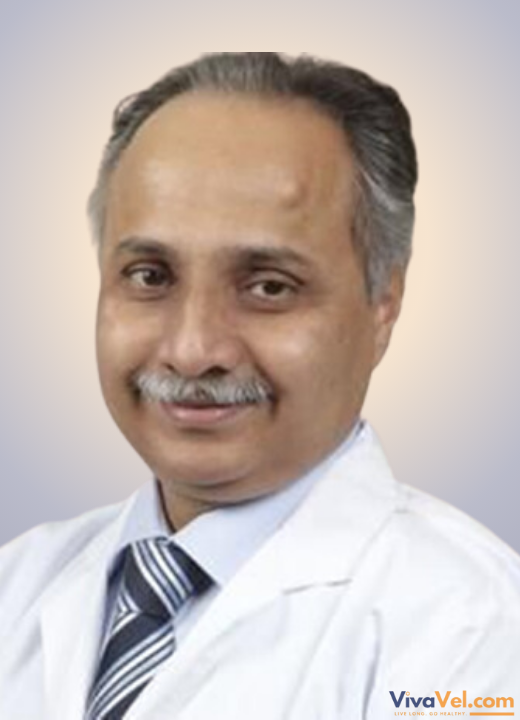info@vivavel.com
+919818262686
+919818262686
 info@vivavel.com
info@vivavel.com +919818262686
+919818262686Pancreatic cancer begins in the pancreas, an important organ located in the abdomen. The pancreas helps digest food and regulates blood sugar levels. This cancer is serious because it is often detected late, making treatment more difficult. Early symptoms, like abdominal pain or weight loss, may be mild and easy to overlook.
When diagnosed early, treatment options include surgery, chemotherapy, and radiation. These treatments aim to remove or shrink the tumor and stop its spread. Unfortunately, pancreatic cancer often spreads before it's found, which lowers the chances of a cure.
However, new treatments and research are improving patient outcomes. Regular check-ups and awareness of risk factors, like family history, smoking, and diabetes, can help in early detection. Early intervention gives the best chance for successful treatment.
 In the early stages, pancreatic cancer may not show any symptoms. As it progresses, some common symptoms may include:
In the early stages, pancreatic cancer may not show any symptoms. As it progresses, some common symptoms may include:
Abdominal pain: Pain in the upper belly that can spread to the back.
Weight loss: Unexplained and rapid weight loss without trying.
Loss of appetite: Feeling full quickly or losing interest in food.
Jaundice: Yellowing of the skin and eyes caused by a blockage in the bile duct.
Dark urine and pale stools: Due to bile duct obstruction.
Nausea and vomiting
Fatigue: Feeling unusually tired or weak.
New or worsening diabetes: Especially if you suddenly develop diabetes later in life.
Note: Other conditions can also cause these symptoms; therefore, consulting a doctor for a proper diagnosis is essential.

 The exact cause of pancreatic cancer is often unknown, but certain factors can increase the risk of developing the disease:
The exact cause of pancreatic cancer is often unknown, but certain factors can increase the risk of developing the disease:
Genetic mutations: Abnormal changes in your genes that can be inherited or develop over time.
Smoking: Tobacco use significantly raises the risk.
Chronic pancreatitis: Long-term inflammation of the pancreas.
Obesity: Excess body weight is linked to a higher risk.
Diabetes: People with diabetes, especially type 2 diabetes, face a greater risk.
 You should seek medical attention if you experience:
You should seek medical attention if you experience:
Persistent upper abdominal pain that worsens over time or radiates to your back.
Unexplained weight loss and loss of appetite.
Yellowing of your skin or eyes (jaundice).
Sudden onset of diabetes, especially without a family history.
Ongoing digestive issues such as nausea, vomiting, or changes in bowel habits.
Early diagnosis can improve outcomes, so see a doctor as soon as possible if you notice any of these symptoms.
 Doctors may use several methods to diagnose pancreatic cancer:
Doctors may use several methods to diagnose pancreatic cancer:
Imaging tests:
CT scan: Provides detailed images to check for tumors.
MRI: Provides a detailed view of the pancreas and its surrounding organs.
Endoscopic ultrasound (EUS): A thin tube with a camera is passed through the stomach to get close-up images of the pancreas.
PET scan: Helps detect the spread of cancer.
Blood tests: Specific markers, such as CA 19-9, can indicate the presence of cancer, but they are not definitive.
Biopsy: A sample of pancreatic tissue is taken to check for cancer cells under a microscope.
 Do's:
Do's:
Eat small, frequent meals: This helps with digestion and maintains stable energy levels.
Maintain a healthy weight: Work with a dietitian to manage nutrition.
Stay hydrated: Drink plenty of water to support digestion.
Follow your treatment plan: Take medications and attend all doctor's appointments.
Seek support: Join a support group or talk to a counsellor to manage emotional stress.
 Don'ts:
Don'ts:
Avoid smoking and alcohol: Smoking and alcohol increase the risk of complications.
Don't ignore symptoms: Report any new or worsening symptoms to your doctor immediately.
Don't skip meals: Even if you have a poor appetite, try to eat regularly.
Disclaimer:
Our medical content authors have diligently gathered and synthesized information on this topic to offer valuable insights to our readers. Drawing from a range of reputable medical journals and health resources, this content aims to enhance understanding of the subject. It's essential to remember that while this information is informative, it should not replace personalized consultation or treatment from a qualified healthcare professional. For further details, please refer to our Editorial Policy.
For this topic, our authors used some of the following resources:
Mayoclinic | Pancreatic Cancer
Cleveland Clinic | Pancreatic Cancer
American Cancer Society | Pancreatic Cancer
American Cancer Society | Pancreatic Cancer Causes, Risk Factors, and Prevention





![]() Pusa Road, Radha Soami Satsang, Rajendra Place New Delhi, 110005 India
Pusa Road, Radha Soami Satsang, Rajendra Place New Delhi, 110005 India



![]() Budena Village, Sector 86, Faridabad, Haryana 121002, India
Budena Village, Sector 86, Faridabad, Haryana 121002, India



![]() Golf Course Rd, Parsvnath Exotica, DLF Phase 5, Sector 53, Gurugram, Haryana Gurgaon, 122022 India
Golf Course Rd, Parsvnath Exotica, DLF Phase 5, Sector 53, Gurugram, Haryana Gurgaon, 122022 India



![]() C-1, Sushant Lok- 1, Sector-43, Phase- I, Gurugram, Haryana, 122002
C-1, Sushant Lok- 1, Sector-43, Phase- I, Gurugram, Haryana, 122002


Dr. Pooja Agarwal stands out as one of the oncologists in Kolkata, specializing in breast cancer surgery. With over 10 years of experience, she has earned a reputatio...

Dr. Harsh Vardhan Atreya is a prominent Consultant Medical & Hemato-Oncologist specializing in Bone Marrow Transplantation. With training from esteemed institutio...

Dr. Imran Khan has joined Fortis Escorts in Okhla Road, New Delhi, as an Associate Consultant in Medical Oncology. He brings over 12 years of experience in oncology. ...

Dr. Harit K Chaturvedi heads the Max Institute of Cancer Care. He has been with Max Healthcare since 2009 and has worked hard to create one of the best cancer treatme...

Dr. Asit Arora is a highly regarded Surgical Gastroenterologist specializing in Gastrointestinal and Hepat-pancreato-biliary (HPB) surgery. He is based in the Delhi N...

Dr. Nikhil Agrawal is a distinguished Gastrointestinal (GI) and Hepato-Pancreato-Biliary (HPB) Surgical Oncologist, serving as the Director of GI-HPB Surgery and Oncology at ...
Treatment Plan & Cost within 2 days
